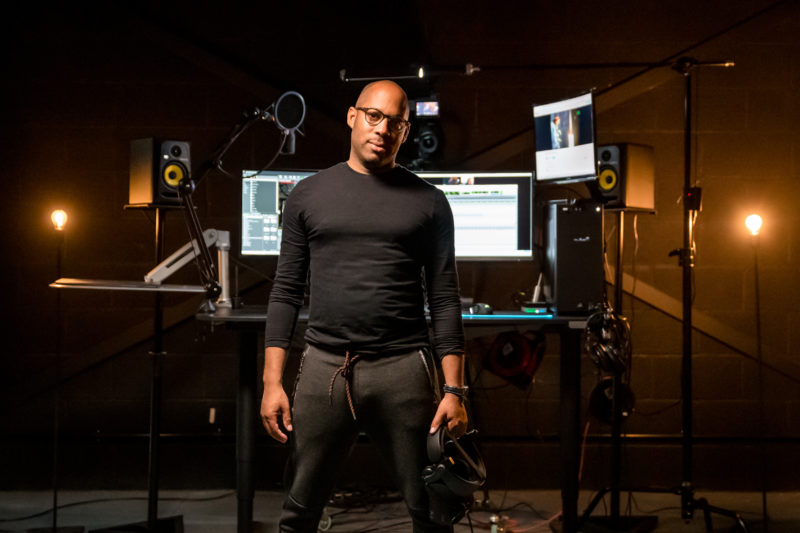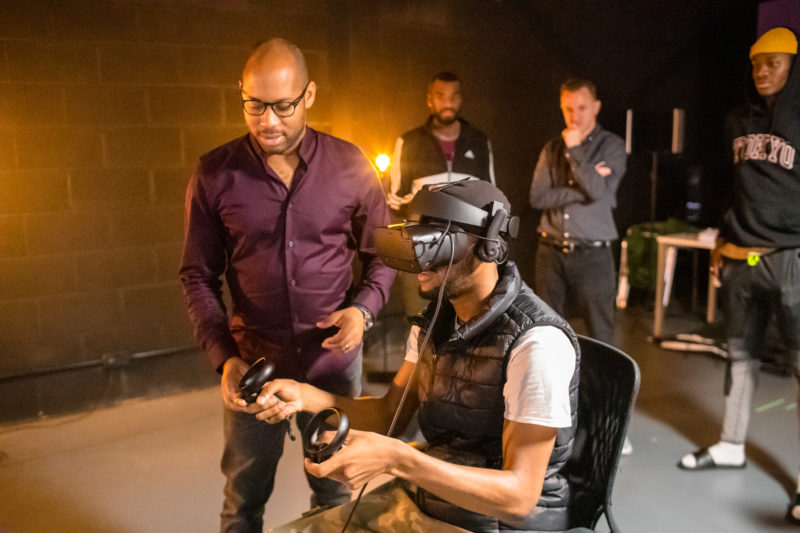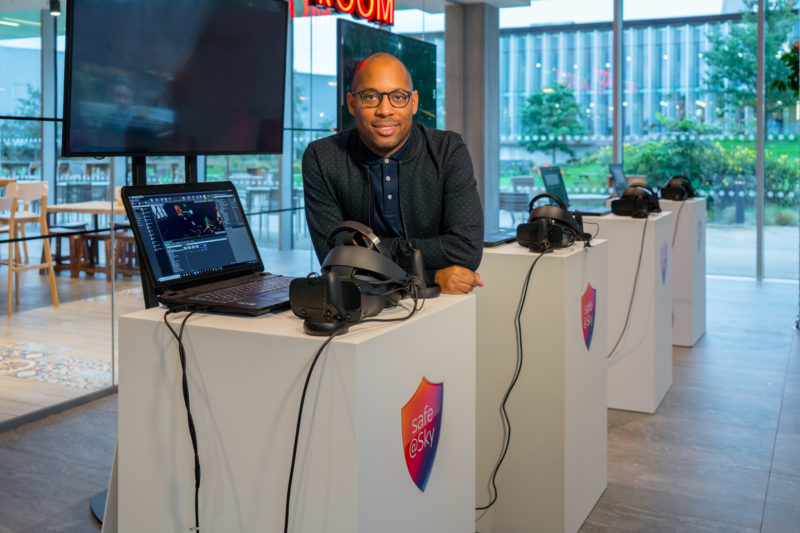Tell us a bit about yourself
I’m Simeon Quarrie, Owner & Founder of VIVIDA. I’m also an ambassador for Canon, an advisor for Google, Youtube and many other organisations. I consider myself a storyteller, I loved telling stories since I was a kid but that did not reflect very well on my grades! I was the distracted kid at the back not liking being told what to do, I could not understand why what I was being taught was important in real life. This is why now I, along with the awesome team here at VIVIDA, use story to make subjects that are vitally important memorable, engaging and leave people with the appetite to learn more.

What are VIVIDA doing right now?
We’re developing these stories at the moment, primarily, using virtual reality. We’re creating worlds to let people connect with subjects in a tactile, real way. One of these subjects is cybersecurity, which is a serious problem for businesses today. We’re creating a series called ‘A Date With A Hacker,’ which brings you face to face with a cyber criminal where he explains his methodology. We create each stage from scratch, motion capturing, cast actors, create 3D models to bring the world to life, work with top composers making custom scores and then our interactive team brings it all to life. We are reaching hearts and minds to make that message clear to the user and connect with them on an emotional level.
When did VIVDA decide to step into virtual reality?
The journey into virtual reality started 2½ years ago, and very much in secret! We were going through a hard few months, we didn’t know when the next project was coming in, and at that moment all my staff were holiday. It was just myself and one other team member in the office, I used the opportunity to get into a zen space and have a look at the possibilities of this immersive technology. I looked into 360 video initially, but then decided to focus fully on virtual reality. We realised that with the dawn of social media, larger productions (that we were known for) were not what the social media age was interested. I always say that if I started VIVDA today we would not be going for the larger projects but for smaller pieces that state the message in individual ‘sentences’ of a whole message.This shift pulled us round to virtual reality, as we now want to create these smaller, more concentrated experiences but make an impact in a much bigger way than what a larger production can deliver.

Describe a typical day at VIVDA
It’s really hectic! We have, in general, two types of days. We have what I call the ‘product day’ where we develop in VR, creating those stories in our storytelling studio. To get that focus for the day I’m normally up at 1:30AM to get in the studio for 2:15AM, just to get in that zen space. This is the time you will normally see me experimenting, asking the question “What Can Be Done?”. It’s important to have time for that – there’s so much untapped potential.
What shifts have you seen over the past year when it comes to immersive technology and what do you see on the horizon as we enter a new decade?
I think immersive technology such as VR has gone through a hype cycle. VIVIDA was set up to tackle virtual reality at the tail end of that hype cycle, with the understanding that the cycle will come to an end. We’ve always tried to have a very realistic approach in that sense and prepare for what the “Loud Voices” were going to say. They were going to focus on VR being a gimmick, not taking huge market share and questioning huge investments with little pay off; they were scared it was going to become yesterday’s news. To weather this storm, we’ve laid low, reduced our burn rate and really understood the technology, now the space is a little quieter we can look at how to make virtual reality a sustainable business and we think we’ve cracked that by using the technology to create stories that move and change behaviour as well as bring about cultural change.
I think a lot of people will be asking the question of how to make it sustainable, but I also think the biggest question is how you explore it on a global stage. Most of the world has not experienced virtual reality at all, and that first experience is a memorable one. If someone’s first experience is shoddy or there’s issues etc. you have just impacted that person’s perception on the technology for life. This is the exciting thing for brands, as if they can work with people to create meaningful, impactful stories, using the technology in a smart and thoughtful way, there is a whole new audience to engage through this medium.
What did you show us today?
VIVIDA have identified a number of key stories that a lot of companies are facing in their workplace, so we are creating those stories in virtual reality which we can then show to a number of businesses rather than creating bespoke, pricier projects for a specific client. You’ve just experienced one of those stories, “A Date With A Hacker,” a fully interactive experience designed to change perceptions and encourage people to take cyber-security more seriously. This experience has been deployed by Sky and Lloyds so far. A lot of people have been calling this corporate training, personally I hate that word as it makes my younger self shudder. We think what we are doing is providing education and awareness on issues that affect businesses all around the world, and using the power of VR to do that.

Finally, obviously you are a valued BIMA Member and BIMA 100 alumni, how has being part of this community helped what you do?
Where BIMA is fantastic is that peer to peer network of individuals from across the length and breadth of the industry. You can talk to people who have been there, who have done it who are willing to share their insight and knowledge in a safe space, almost like chatham house rules. It allows us to hear from an experienced veteran to let us know “yeah…let’s not go in that direction!” or “let’s focus on this”. We’ve been able to shift, change and reaffirm our ideas thanks to listening to the community. And, of course, being a BIMA 100 was huge, and if anything it made me want to get my head down more. It was a reaffirmation that we are doing the right thing, and to be recognised by the community was an honour.